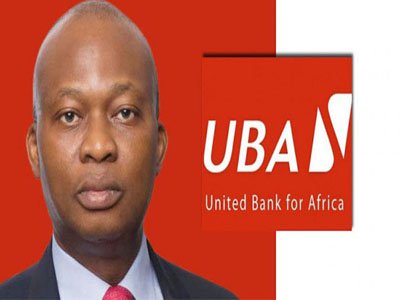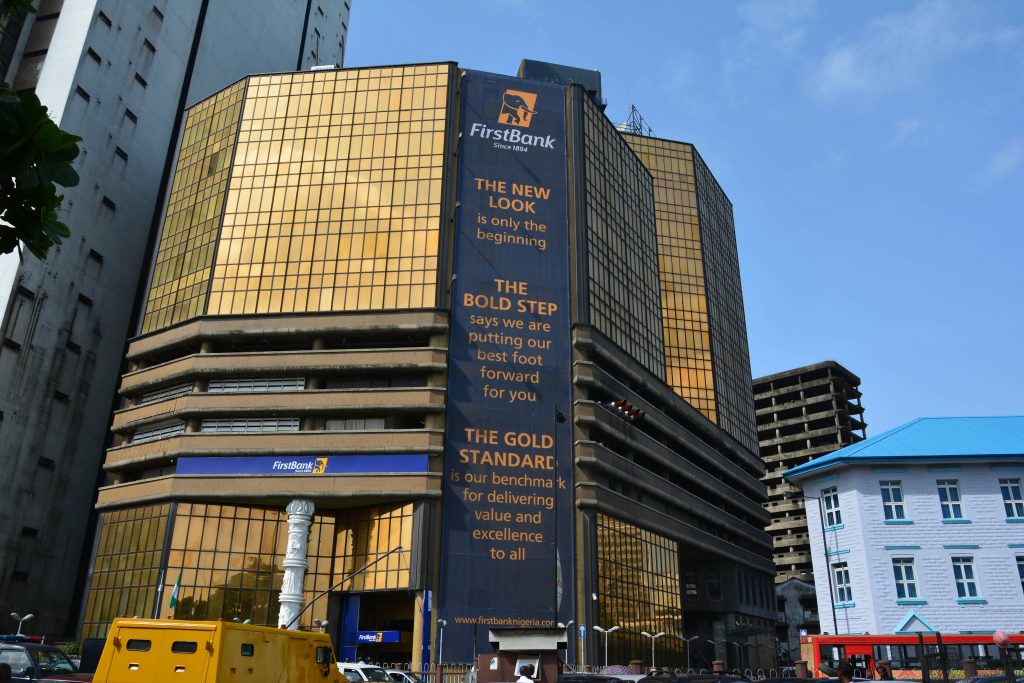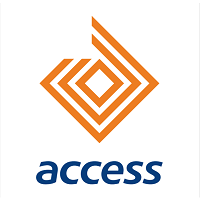brand
UBA Hinges Future Performance on Cost Efficiency, Improved Asset Quality

 Pan African financial institution, United Bank for Africa (UBA) Plc has assured its local and international investors that it’s prudent focus on improved asset quality as well as the continuous adoption of strict cost efficient measures will help the bank achieve its objectives and priorities for the 2019 financial year and beyond.
Pan African financial institution, United Bank for Africa (UBA) Plc has assured its local and international investors that it’s prudent focus on improved asset quality as well as the continuous adoption of strict cost efficient measures will help the bank achieve its objectives and priorities for the 2019 financial year and beyond.
This the bank has said will culminate into an institution with even stronger indices laced with the capacity to churn out strong double-digit growth in annuity-based trade services, enhanced offerings and improved customer service.
Already, the bank has instituted a number of enhanced risk management and control framework which have in no small measure contributed to its financial performances and overall balance sheet growth over the years.
The Group Managing Director/Chief Executive Officer, Mr. Kennedy Uzoka, who noted this in a submission while presenting the bank’s 2018 full year results during an international investor/ analysts conference call on Thursday, explained that UBA’s well diversified asset book supported by stable funding structure, placed it in a premium position to perform remarkably despite the falling economic indices in its operating environment.
He said, “In spite of slow recovery in economic activities in Nigeria (our single largest market), the Group’s total assets has grown by 19.7%, driven largely by a strong deposit growth of 23%, as the drive for retail deposits continue to yield desired results. Leveraging on enhanced customer service, the Group grew retail deposits by 48%, thus strengthening the funding base and providing the foundation for lower cost of funds in 2019.
“Notably, the growth in balance sheet also partly reflects the impact of exchange rate difference between the reporting dates (2017: N331/USD vs. 2018: N359/USD), as 37% of loans and 27% of overall balance sheet is FCY-denominated. The Group maintained its appetite for a well-diversified balance sheet, with over 60% in liquid, low risk instruments.”
Uzoka explained to the investors that the bank recorded impressive growths achieved across major financial lines, recording a 48 percent year-on-year growth in retail deposits and improved CASA ratio to 77 percent.
In its results for the year end December 2018, UBA gross earnings grew by 7.0 percent to N494.0 billion, compared to N461.6 billion recorded in the corresponding period of 2017. The Bank’s total assets also grew significantly by 19.7 percent to an unprecedented N4.9 trillion for the year under review
Throwing more light on the financials, he stated that gross earnings grew by 7% year-on-year, despite regulation and market conditions undermined the non-interest income line. Interest income, which contributed 73% of gross earnings, grew by 11%, driven by strong interest income on treasuries, reflecting the low-risk appetite and treasury-led strategy adopted during the year. He noted that the lower non-interest income was occasioned by market condition and regulatory impact on FX trading income, adding that growing volume on FX trading is compensating for lower margin on this business, thus reinforcing our positive growth expectation on this income line in 2019.
While speaking on the strength of the financial institution in the coming years, especially on the back of it’s African and non-African subsidiaries, Uzoka said the bank’s recent foray into key markets and economies remain a milestone that will catapult the institution in the coming years.
He said, “UBA is a unique pan-African franchise with diversified risk and earnings across fast growing African economies with sound governance, risk management and compliance culture which can be seen from our adherence to international best practice. Our robust digital banking platform through which we are leveraging technology to serve over 15 million customers in a cost efficient approach that has helped to deepen African banking penetration.
 “We have the strong financial capacity backed by high capitalization (BASEL II capital ratio well above requirement) and strong liquidity, and we have worked hard towards connecting Africa and the world through our presence in key African markets and major global financial centres such as New York, London and Paris.”
“We have the strong financial capacity backed by high capitalization (BASEL II capital ratio well above requirement) and strong liquidity, and we have worked hard towards connecting Africa and the world through our presence in key African markets and major global financial centres such as New York, London and Paris.”
brand
FIRSTBANK MARKS SIGNIFICANT MILESTONE: ₦1 TRILLION IN INSTANT DIGITAL LOAN DISBURSEMENTS
brand
FIRSTBANK PARTNERS UNGC TO DRIVE SUSTAINABLE FINANCE AND UNLOCK CAPITAL FOR DEVELOPMENT

 FirstBank, the West Africa premier financial institution and financial inclusion services provider, has strengthened its partnership with the United Nations Global Compact (UNGC) to reaffirm its commitment to driving sustainable finance and unlocking capital for development. This ongoing partnership was reinforced at the recently concluded Fourth International Conference on Financing for Development (FfD4) hosted by the United Nations Department of Economic and Social Affairs (UN DESA) in Seville, Spain.
FirstBank, the West Africa premier financial institution and financial inclusion services provider, has strengthened its partnership with the United Nations Global Compact (UNGC) to reaffirm its commitment to driving sustainable finance and unlocking capital for development. This ongoing partnership was reinforced at the recently concluded Fourth International Conference on Financing for Development (FfD4) hosted by the United Nations Department of Economic and Social Affairs (UN DESA) in Seville, Spain.
The FfD4 Conference brought together global leaders, policymakers, and private sector experts to discuss innovative solutions to address the growing SDG financing gap and unlock capital for development in fragile and underserved regions.
FirstBank’s Chief Risk Officer, Patrick Akhidenor, represented the bank at the conference and highlighted two FirstBank flagship initiatives driving resilience finance in Nigeria: The Solar Equipment Financing initiative and the revamped FirstGem Fund. The Solar Equipment Financing initiative offers tailored financing options for the purchase and installation of solar power systems, ensuring access to clean, reliable, and affordable energy solutions. The FirstGem Fund, a women-focused proposition, provides single-digit interest loans to women entrepreneurs without collateral requirements, targeting funding gaps in critical sectors.
‘’We are committed to driving sustainable finance and unlocking capital for development,” said Patrick Akhidenor. “Our partnership with UNGC and participation in the FfD4 Conference demonstrate our dedication to innovative finance solutions that address the SDG financing gap.”
Sanda Ojambo, CEO of UNGC, emphasized the need for innovative, inclusive financial models for underserved regions. “The private sector must play a central role in shaping fit-for-purpose, scalable finance solutions,” she said. “De-risking tools and blended finance can help unlock capital and drive meaningful impact.
FirstBank’s partnership with Development Finance Institutions (DFIs) and its SMEConnect hub demonstrate its capacity to lead efforts in sustainable finance. The bank provides training, networking, and tailored financing to SMEs across various sectors, including education, healthcare, and retail
brand
Access Holdings Reaffirms Strategic Growth Plan from Expansion to Optimisation


Access Holdings PLC, the parent company of Access
-

 news5 years ago
news5 years agoUPDATE: #ENDSARS: CCTV footage of Lekki shootings intact – Says Sanwo – Olu
-

 news2 years ago
news2 years agoEnvironmental Pollutions : OGONI COMMUNITY CRIES OUT, THREATENS TO SHUT DOWN FIRSTBANK,SHELL OIL COMPANY OPERATIONS FOR NOT PAYING COURT AWARD
-

 lifestyle5 years ago
lifestyle5 years agoFormer Miss World: Mixed reactions trail Agbani Darego’s looks
-

 health4 years ago
health4 years agoChairman Agege LG, Ganiyu Egunjobi Receives Covid-19 Vaccines
-

 lifestyle4 years ago
lifestyle4 years agoObateru: Celebrating a Quintessential PR Man at 60
-

 health5 years ago
health5 years agoUPDATE : Nigeria Records 790 new cases of COVID-19
-

 politics3 months ago
politics3 months agoBreaking : Oborevwori , Okowa others dumps PDP, defects to APC
-

 news2 months ago
news2 months agoBREAKING: Tinubu swears in new NNPCL Board


